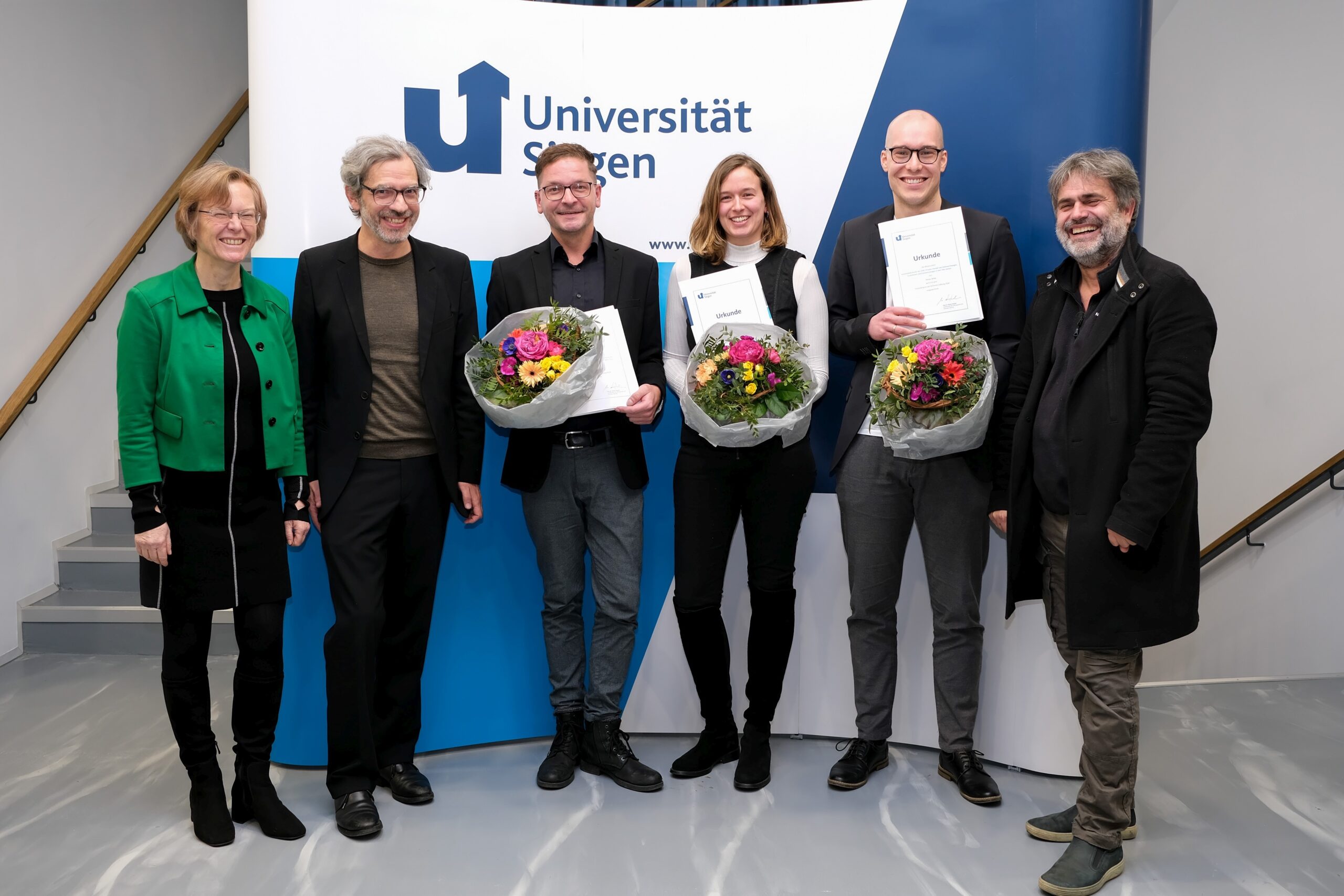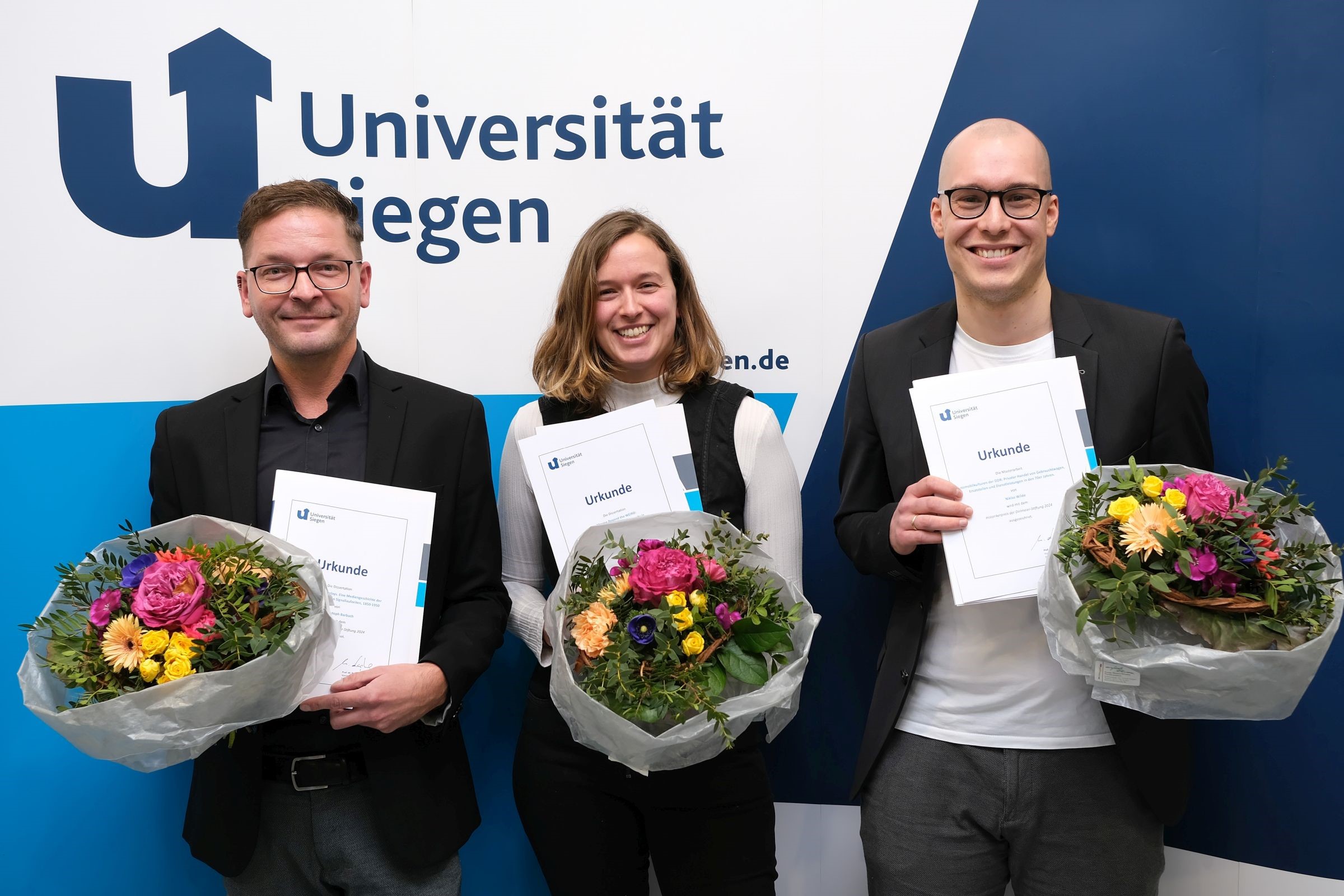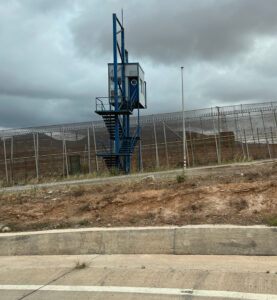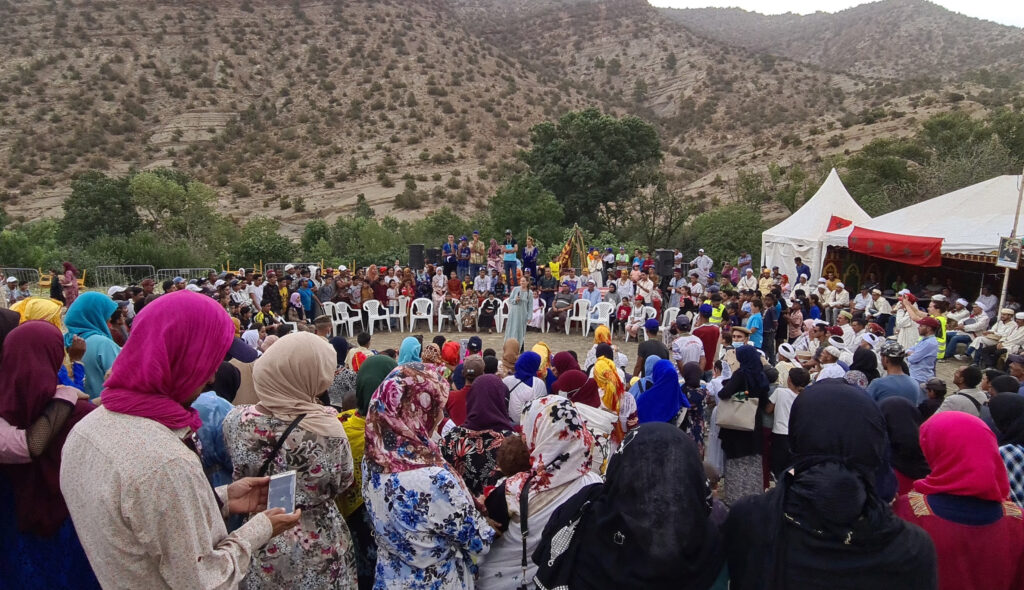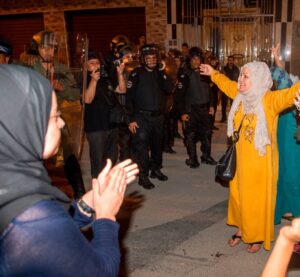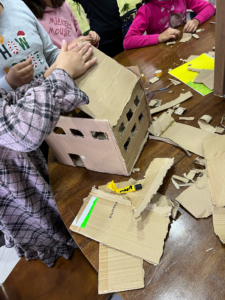Aktuelle Dissertationen aus dem Teilprojekt B04 „Digitale Öffentlichkeiten und gesellschaftliche Transformation im Maghreb“ veröffentlicht
von Konstantin Aal und Sarah Rüller (Universität Siegen)
In unserer Buchreihe Medien der Kooperation sind dieses Frühjahr gleich zwei Dissertationen aus dem Teilprojekt B04 „Digitale Öffentlichkeiten und gesellschaftliche Transformation im Maghreb“ erschienen. Beide Arbeiten widmen sich Aspekten und Fragen der digitalen Zukunft im Mittleren Osten und Nordafrika.
Über Influence of Social Media in a Changing Landscape of Crisis
Welchen Einfluss haben Soziale Medien und Informations- und Kommunikationstechnologien auf verschiedene Konflikte der Welt? Konstantin Aal geht dieser Frage in seinem 2025 erschienenen Dissertationschrift Influence of Social Media in a Changing Landscape of Crisis:Insights into the Digital Dynamics of Conflict and Activism in the Middle Eastern and North African Region nach.
Das Buch untersucht den Einsatz und den Einfluss von Informations- und Kommunikationstechnologien (IKT) und Sozialen Medien in Konflikten wie den Arabischen Frühling in Tunesien, den Krieg in Syrien, den palästinensischen Aktivismus und den jüngsten Protesten im Iran. Anhand dieser vier Studien sowie einer engen Zusammenarbeit mit Personen vor Ort, bewertet die Forschung die Auswirkungen Sozialer Medien in verschiedenen Kontexten und unter Berücksichtigung der historischen, sozioökonomischen und soziotechnischen Dynamiken der Regionen und hinterfragt die angewandten Methoden kritisch.
Verlagstext:
Social media and information and communication technologies (ICTs) have played a pivotal role in various conflicts around the world, including the Arab Spring in Tunisia, the war in Syria, Palestinian activism, and the recent protests in Iran. This book examines the use and impact of ICT and social media in these conflicts, focusing on countries in the MENA region. The research takes an on-the-ground approach, working closely with local people to understand their everyday use and appropriation of social media and ICT. The author presents four studies covering different aspects of social media use in conflict: the evolution of the media landscape in post-uprising Tunisia; Palestinian activists using social media to oppose the construction of the wall; the role of social media among Syrian Free Army fighters, activists and refugees; and young Iranians‘ strategies for circumventing internet restrictions. These studies reveal the ways in which social media and conflict intersect. The research assesses the impact of social media in these settings, considering the historical, socio-economic and socio-technical dynamics of the regions. Finally, the dissertation critically reflects on the methods used in this fieldwork, emphasizing the role of the researcher and personal biases.
Über Moving Beyond the WEIRD
Mit welchen Herausforderungen muss sich westliche digitale Forschung in nicht-westlichen Kontexten auseinandersetzen? Sarah Rüller untersucht diese Frage in ihrem 2025 veröffentlichten Dissertation Moving Beyond the WEIRD: Lessons from an Amazigh Community in Shaping Pluralistic Digital Futures nach.
Verlagstext:
In this open-access book, Sarah Rüller offers a comprehensive exploration of the complexities and nuances of conducting Western digital research in non-Western contexts, focusing on a case study in the High Atlas Mountains of Morocco. The research underscores the importance of addressing the challenges inherent in navigating this intercultural landscape, particularly as Western researchers immersed in ethnographic work. The studies highlight the multifaceted issues surrounding postcolonial frameworks, extractivism, technocapitalism, exploitation, and the evolving paradigms of development and sustainability, and underscores the urgent need for a more pluralistic, site-specific co-design approach. This approach is central to promoting inclusive and just digital futures, mitigating the impact of WEIRD (Western, Educated, Industrialized, Rich, and Democratic) biases, and unraveling the complex interplay of local and rural contexts torn between authenticity and exploitation by information and communication technologies (ICTs). This research delves deeper into a critical analysis of the establishment of a MediaSpace and the different community perspectives on technology access, revealing tensions and contradictions that shape the discourse on development and self-determination.
Konstantin Aal studied Business Informatics at the University of Siegen and has been working as a research assistant at the Chair of Business Informatics and New Media at the University of Siegen since the end of 2012 and part of the Project B04 of the CRC 1187 since 2016. Sarah Rüller studied Media Science (B.A.) and Human Computer Interaction (M.Sc.) at the University of Siegen. From 2020 until 2025, Sarah Rüller worked as a research associate at the Chair of Information Systems and New Media and the Project B04 of the CRC 1187.
Digital network media are designed as cooperative tools, platforms and infrastructures which transform existing publics and give rise to new ones. Digital media can no longer be understood as individual media, but demand a practice-theoretical perspective on media and their history. All media are cooperatively accomplished devices of cooperation. Media practices and techniques evolve from the mutual making of shared resources and joint processes. That’s why the study of digital media disturbs our scientific division of labour and remains a challenge for the intersections between media theory and social theory.
